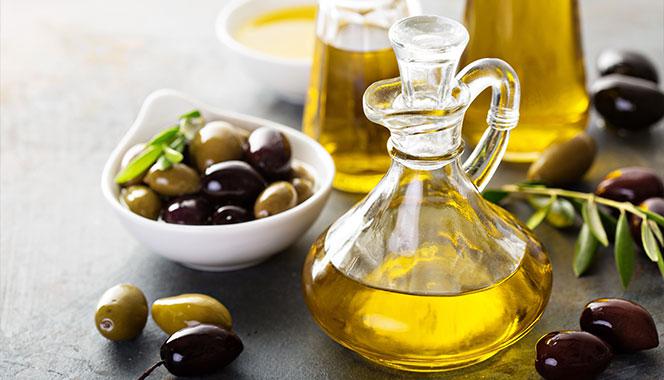Olive is a species of tree. People utilize the oil extracted from the seeds and fruits and water extracts from the fruit, and leaves for making medicine.
Olive oil is used to stop heart attacks and strokes (cardiovascular disease) Breast cancer, colorectal cancer, rheumatoid arthritis, and migraine headache.
Some people use olive oil in order to relieve constipation and high cholesterol, as well as the high pressure of blood vessels, issues associated with diabetes, and the ear infection that causes pain as well as arthritis and gallbladder diseases. Olive oil is also used to treat gastric jaundice, intestinal gas along with meteorism (swelling of the abdomen due to gas).
Many people also make use of olive oil to help boost the growth of the bacteria in their guts and as an “cleanser” or “purifier.”
Olive oil can be applied to the skin (used to treat the skin) for earwax removal, the ringing of ears (tinnitus), pain in the ears lice, cuts, minor burns, psoriasis stretch marks caused by pregnancy, and for protecting the skin from UV (UV) damage from sun exposure.
In cooking the olive oil is utilized to cook and as salad oil.
Health benefits and side effects of olives or (wellhealthorganic.com:11-health-benefits-and-side-effects-of-olives-benefits-of-olives)
- The breast cancer. People who eat more olive oil in their diet seem to be at a lower risk of getting breast cancer.
- The heart disease. Replace saturated fats in your food with olive oil may reduce the risk factors that can cause heart attack and stroke, by lowering blood pressure as well as cholesterol. Adding olive oil to the diet is believed to reduce the risk of the possibility of having a heart attack in the first place. Some research shows a high consumption of olive oil (54 grams/day, which is about 4 tablespoons) could reduce the risk of having a heart attack first by 82% when compared with an infrequent intake of seven grams olive oil or less every day. Incorporating 1 liter of olive oil per week of extra-virgin olive oil the Mediterranean diet for five years can assist in preventing heart attacks as well as strokes among people who are over 55 with diabetes or a combination of heart-related risk factors (smoking or drinking, high blood pressure, cholesterol levels that are high, LDL (“bad”) cholesterol and lower HDL (“good”) cholesterol excessive weight, or an ancestor with a with a history of heart diseases). A Mediterranean diet includes a large amount of nuts, fruit and vegetables, along with cereals and grains moderate consumption of poultry and fish and little consumption of milk products including red meat processed meats, as well as sweets.The FDA now allows labels on olive oil as well as on food that contains olive oil that state that there is a limited, but not conclusive, evidence suggests that daily consumption of 23 grams (about 2-tbsp) from olive oil instead of saturated fats may reduce the risk of heart disease.
- Colorectal cancer. Studies suggest that those who consume greater amounts of olive oil as part of their diets are at a lower risk of developing colorectal cancer.
- Cholesterol levels are high. The use of olive oil in the diet, instead of saturated fats, can lower total cholesterol levels for those with high cholesterol. Some research suggests other dietary oils such as sunflower and Rapeseed (canola) could help reduce “bad” low-density lipoprotein (LDL) cholesterol and a different kind of cholesterol known as the apolipoprotein B more effectively over olive oil.
- Blood pressure is high. Incorporating large quantities of olive oil extra virgin in your diet along regular treatments for high blood pressure could improve blood pressure over 6 months in people with hypertension. In certain instances, those who have moderate to mild high blood pressure could reduce their dosage of blood pressure medication or even stop taking medication altogether. However, you should not alter your medications without the supervision of your doctor. Also, taking olive leaf extract is believed to lower blood pressure in those with high blood pressure.
- Earwax. Applying olive oil to the skin doesn’t appear to soften earwax.
- Ear problems. Applying olive oil on the skin doesn’t appear to reduce pain in children suffering from ear infections.
Some of the side effects of olive oil include:
The olive oil you use is LIKELY SAFE when it is taken in a safe manner through mouth or applied for skin application. Olive oil is a good choice safely, with a percentage of 14% of total daily calories. This amounts to two tablespoons (28 grams) daily. A maximum of 1 liter per week of extra-virgin olive oil has been utilized safely as a component of a Mediterranean-style eating plan for up to 5.8 years.
Olive oil that is taken orally is well tolerated. When applied to the skin, delayed allergic reactions and contact dermatitis have also been reported.
There is insufficient reliable information available about the safety of olive leaf even though olive leaf and fruit pulp have not been linked to any significant adverse side effects in clinical studies.
Olive trees produce pollen that can cause seasonal respiratory allergy in some people.

